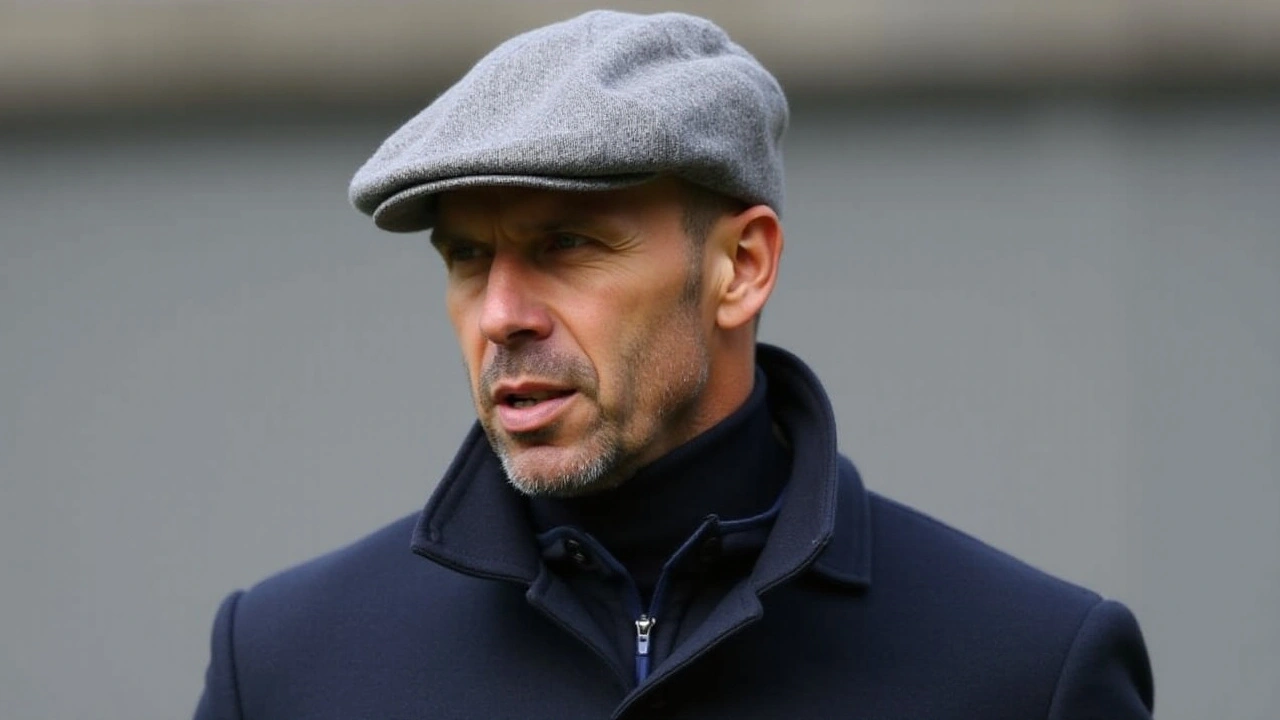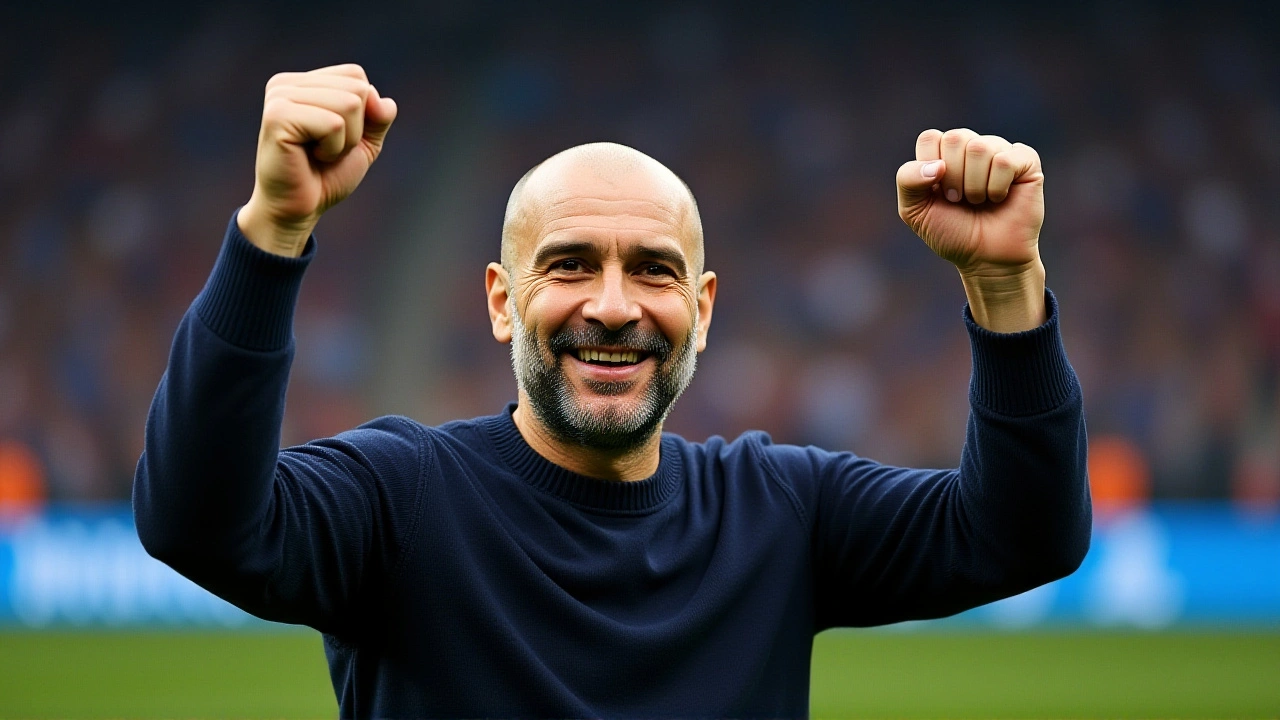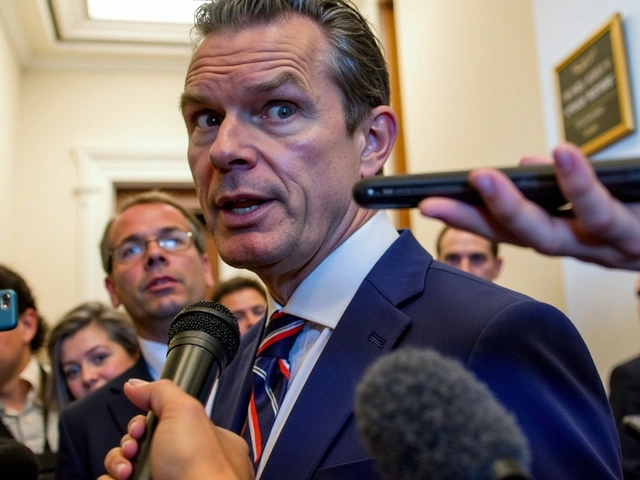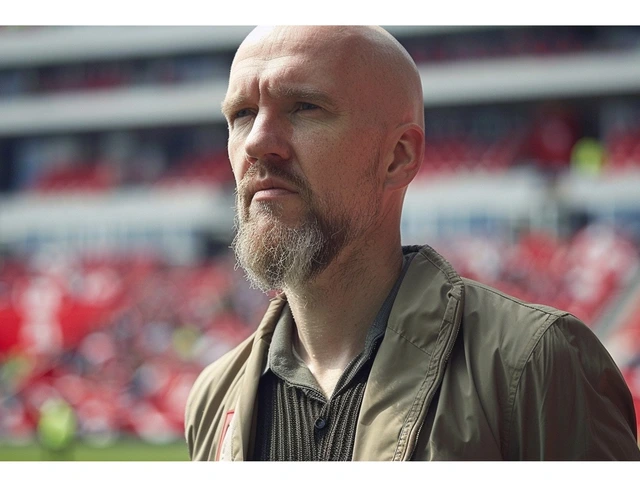Benjamin Mendy's Fight for Justice
In the ever-competitive world of professional football, the pitch isn't the only battlefield players must navigate. Beyond the stadium lights, issues of fairness and contractual obligations can come to the fore, as demonstrated by former Manchester City defender Benjamin Mendy's recent legal victory. Mendy's triumph centers around a substantial portion of the $14 million he claimed as unpaid wages from his time with the prestigious club. This ruling not only highlights the player's personal victory but also underscores a broader narrative about the importance of honoring contracts in the sports industry.
Benjamin Mendy, celebrated for his dynamic style of play and tenacity, found himself embroiled in a legal tussle that speaks volumes about the realities faced by professional athletes. While fans often witness the glamour and grandeur on the field, the off-field battles these athletes endure remain largely obscured. Mendy's persistence in seeking justice sheds light on these hidden dimensions of a footballer's life. As the details of the case illustrate, Mendy was determined to claim what he believed rightfully belonged to him, and his success is a testament to the power of standing firm in the face of adversity.
Manchester City's Challenges
The court's decision in favor of Mendy doesn't just signify a personal success for the player; it sends ripples across the sports world, emphasizing the consequences clubs face when contractual promises are broken. For Manchester City, a club synonymous with success and celebrated for its stellar performances, this legal setback serves as a stark reminder of the potential pitfalls that lurk beyond the pitch. Currently facing its own set of challenges, including a hefty 4-1 Champions League loss to Sporting and a lineup strained by injuries to key players, Manchester City's off-field troubles add another layer of complexity to their current predicament.
Significance of the Ruling
For football clubs, maintaining harmonious contractual relationships with players is crucial, not only for legal integrity but also for preserving the spirit of cooperation and goodwill. The ruling in Mendy's favor shines a spotlight on the necessity for football clubs to fulfill their obligations, remaining vigilant to avoid such legal entanglements. When players extend their loyalty, dedication, and performances on the field, it's imperative that clubs reciprocate by honoring the commitments laid out in contracts.
The implications of this ruling are manifold. While it pounds Manchester City with a substantial financial burden, it also sets a precedent that could influence how contracts are handled across the sporting world. With the meteoric rise of football as a global spectacle, clubs must remain vigilant, ensuring their engagements with players are free from ambiguities that could later turn into costly legal battles.
A Win for Players' Rights
Although the exact figure awarded to Mendy remains undisclosed, reports suggest that it's a considerable portion of the initial $14 million claim — a clear indication of his resounding legal success. This win is significant not just for Mendy, but for players worldwide. It reinforces the message that they are not powerless in the face of club might and highlights the role of legal frameworks in safeguarding player rights.
Contracts in professional sports are more than mere formalities; they're blueprints that chart the trajectory of careers. They are instruments of trust and accountability, designed to uphold fairness and equal terms between clubs and players. As Mendy's case illustrates, when these agreements are called into question, the affected parties must have the courage and means to pursue recourse through legal avenues to uphold their rights.
The Ripple Effect
This development may prompt clubs to reevaluate their contractual strategies, ensuring transparency and fidelity in all negotiations. The football community worldwide is watching, as this case could inspire athletes facing similar issues to speak out and seek justice. It may guide future contractual decisions, shaping how club and player interaction evolve.
As Manchester City absorbs this legal blow amidst its ongoing challenges, it might serve as a learning moment for other clubs as well. The sports industry, by nature, is full of unpredictability both on and off the field. As Mendy's case reveals, seeking justice involves resilience and unwavering faith in righting perceived wrongs, regardless of high-profile stakes.
A New Horizon
In conclusion, Benjamin Mendy's win is a watershed moment, marking a notable chapter in the ongoing narrative between players' equities and clubs' responsibilities. It's a reminder that underneath the glitz and glamour, football's foundation rests on mutual respect and adherence to promises made. As the sports world's landscape continues to evolve, stories like Mendy's will likely continue to shape and refine the nuances of professional relationships, with clubs and players striving for clearer, fairer transactions.









Hina Tiwari
November 7, 2024 AT 03:47 AMI totally get how exhausting off‑field battles can be for players like Mendy.
Seeing him finally get a fair settlement feels defintively right.
The legal system isn’t always kind, but his persistence paid off.
It’s a reminder that clubs need to keep their promises, no matter how big the star.
Hope other athletes feel encouraged to stand up for themselves.
WILL WILLIAMS
November 8, 2024 AT 07:34 AMWhat a spectacular win for player rights!
The courtroom drama was intense, but the verdict shines bright.
Clubs should take note and tighten their contracts.
Justice served, and the football world breathes a sigh of relief.
Barry Hall
November 9, 2024 AT 11:20 AMWell done, Mendy! :)
abi rama
November 10, 2024 AT 15:07 PMMendy’s victory is a solid boost for all of us who believe in fairness.
It shows that standing your ground can actually move mountains.
Even with the glamour, the grunt work behind the scenes matters.
Let’s keep this momentum going for future players.
Megan Riley
November 11, 2024 AT 18:54 PMHonestly, this case sets a precedent, and it’s about time, clubs!
Players deserve transparency, accountability, and respect, especially when multi‑million contracts are on the line.
Seeing Mendy finally get his dues is both a warning and a lesson, folks.
Let’s hope this pushes teams to audit their agreements, or else…
We’ll see more headlines like this, and nobody wants that.
Lester Focke
November 12, 2024 AT 22:40 PMThe jurisprudential ramifications of the Mendy settlement are, without hyperbole, profoundly instructive for the modern custodians of elite sport.
First, it reifies the sacrosanct nature of contractual fidelity, a principle hitherto relegated to the periphery of club‑player discourse.
Second, it foregrounds the judicial willingness to adjudicate financial grievances with a rigor that eclipses the oft‑cited leniency afforded to supranational entities.
Third, it underscores the asymmetrical power dynamics that have historically favored capital‑rich institutions over individual labor.
Moreover, the quantification of a “substantial portion” of a fourteen‑million‑dollar claim demarcates a tangible benchmark for future litigants.
The precedent thereby erodes any complacent assumption that monetary disputes may be arbitrarily dismissed.
In practical terms, club executives are compelled to audit their fiscal obligations with scrupulous exactitude.
Such audits, if undertaken proactively, may preempt protracted litigation and preserve institutional reputation.
Conversely, a failure to internalize this jurisprudence may precipitate cascading financial liabilities across the league.
Observers of the sport must also recognize the ancillary message conveyed to supporters, whose allegiance is often predicated on perceived ethical stewardship.
The fans’ perception of fairness, once aggrandized by on‑field triumphs, now confronts the stark reality of off‑field inequities.
Consequently, the club’s brand equity is inexorably linked to its compliance with contractual imperatives.
This case also furnishes a didactic tool for agents, whose counsel must now integrate heightened vigilance regarding remuneration clauses.
In summation, the Mendy verdict functions as a catalytic catalyst, compelling a recalibration of contractual praxis throughout professional football.
It is, unequivocally, a watershed moment that will echo in boardrooms, courtrooms, and locker rooms alike.
Naveen Kumar Lokanatha
November 14, 2024 AT 02:27 AMIt is clear that clubs must honor their financial commitments to players it is not merely a legal issue but a moral one
Failure to do so risks reputational damage and possible sanctions
Mendy's case illustrates that even top clubs are not immune to scrutiny
Stakeholders should therefore prioritize transparency in all agreements
Alastair Moreton
November 15, 2024 AT 06:14 AMHonestly, this whole saga feels like clubs trying to dodge responsibility while fans get the drama fix.
It’s entertaining to watch, but the underlying negligence is concerning.
Maybe next time they’ll think twice before short‑changing a player.
Surya Shrestha
November 16, 2024 AT 10:00 AMOne cannot overlook the profound implications of the Mendy settlement, which unequivocally signals a paradigmatic shift in contractual jurisprudence, thereby compelling clubs to reexamine their fiscal obligations;
Such a development, replete with legal nuance, mandates an elevated standard of contractual diligence;
Consequently, the footballing ecosystem must adapt to this heightened accountability, lest it falters under the weight of its own complacency.
Rahul kumar
November 17, 2024 AT 13:47 PMYo guys, clubs should double‑check their payroll sheets to avoid a repeat of this mess
Mendy got his dues because the legal team dug deep, so make sure your contracts are crystal clear
If you’re a player, keep records of every payment promise
And always have a good lawyer on standby, it saves a lot of headache
mary oconnell
November 18, 2024 AT 17:34 PMFrom a systems‑theoretic perspective, the Mendy arbitration epitomizes a classic failure mode in stakeholder alignment, where contract semantics become the Achilles' heel of an otherwise robust value chain.
One must appreciate the delightful irony that the very institutions championing competitive excellence are prone to such elementary fiscal oversights.
Nevertheless, this episode enriches the discourse on fiduciary responsibility, providing a fertile substrate for future policy iteration.
So, kudos to Mendy for navigating the labyrinthine legal architecture-truly a masterclass in player‑centric advocacy.
Michael Laffitte
November 19, 2024 AT 21:20 PMWow, that verdict really lit up the arena of player rights!
It’s like watching a courtroom drama unfold with the stakes higher than any Champions League final.
Now we can all breathe a little easier knowing justice can still find its way.
sahil jain
November 21, 2024 AT 01:07 AMLet’s keep the momentum going for all athletes who deserve fair pay!
The Mendy case shows that persistence pays off, even when the odds seem stacked.
Stay focused, stay relentless 😎